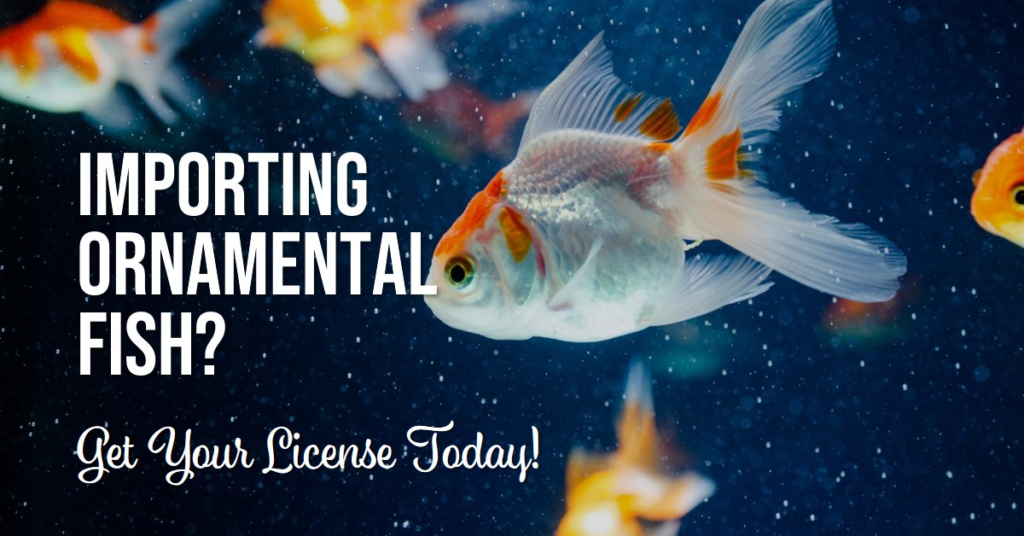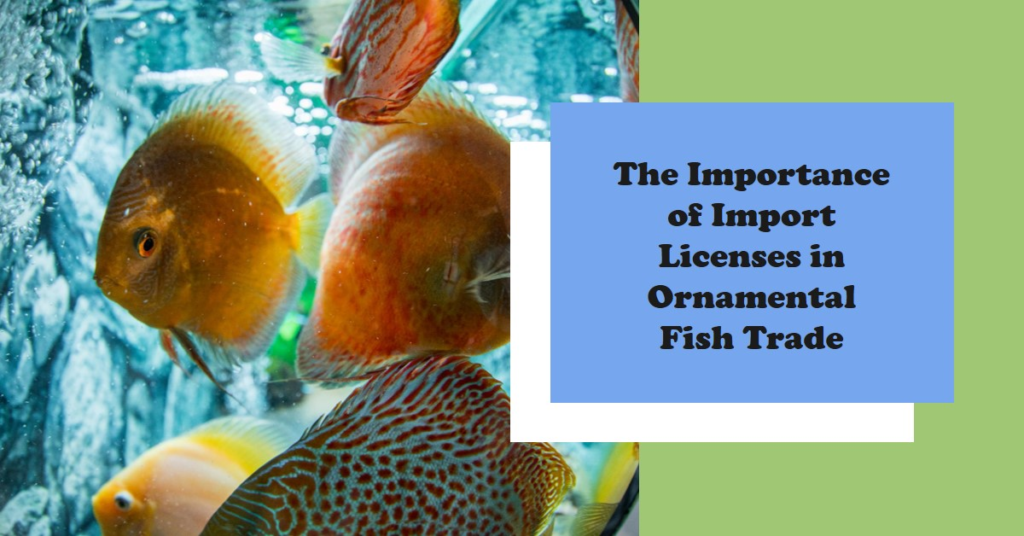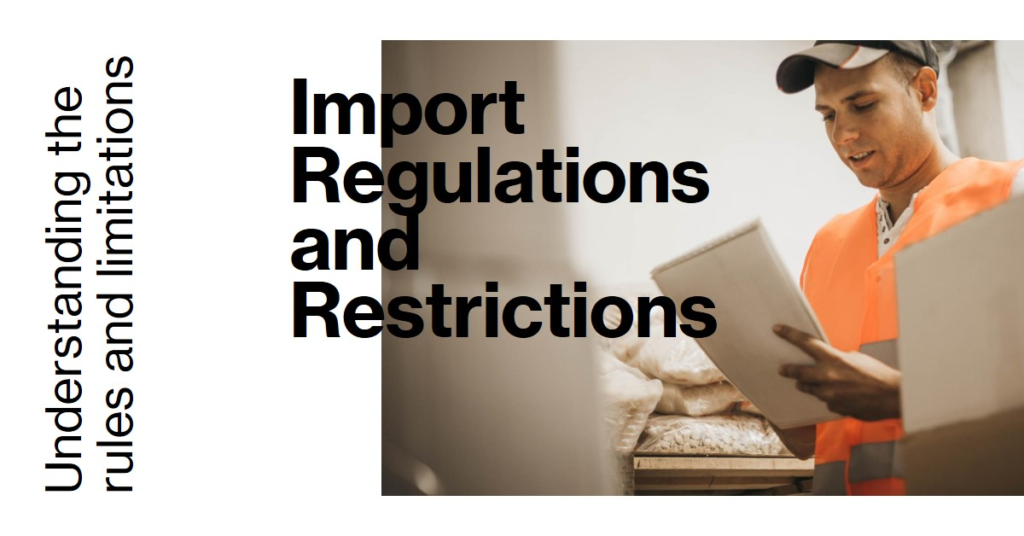
Table of Contents
Preface
In the global trade of ornamental fish, adhering to import regulations is consummate. One of the abecedarian conditions for importing ornamental fish is carrying the necessary import license. This composition aims to give a comprehensive understanding of the conditions for acquiring similar licenses, their significance, and the process involved.
Important of Import Licenses in Ornamental Fish Trade

Import licenses play a pivotal part in regulating the importation of ornamental fish species. They insure that imported fish match specific norms, similar as health and environmental regulations, and help the preface of invasive species into original ecosystems.
Regulatory Bodies and Agencies Involved
Colorful nonsupervisory bodies and agencies oversee the allocation of import licenses for ornamental fish. These may include government departments responsible for fisheries, husbandry, and environmental protection, as well as transnational associations like the Convention on International Trade in Endangered Species of Wild Fauna and Flora( CITES).
Eligibility Criteria for carrying an Import License
To gain an import license for ornamental fish, aspirants generally need to meet certain eligibility criteria set forth by nonsupervisory authorities. This may include enjoying applicable permits, demonstrating compliance with import regulations, and maintaining suitable installations for handling and quarantining imported fish.
Documentation Required for Application
Application are generally needed to submit a range of attestation as part of the import license operation process. This may include evidence of legal reality status, detailed import plans, health instruments for the fish being imported, and substantiation of compliance with environmental regulations.
Understanding Import Regulations and Restrictions

Import regulations for ornamental fish can vary significantly between countries and regions. These regulations may include restrictions on the importation of certain species, conditions for complaint testing and counterblockade, and specifications for packaging and transport.
Compliance with Environmental and Health norms
Importers must insure that the ornamental fish they import match specific environmental and health norms. This may involve clinging to regulations regarding the use of antibiotics and other specifics, minimizing the threat of introducing fantastic conditions, and icing the sustainable harvesting of wild- caught species.
Application Process Step- by- Step
The process of carrying an import license for ornamental fish generally involves several way, including completing an operation form, furnishing supporting attestation, witnessing examinations and checkups, and paying any applicable freights. It’s essential to precisely follow all instructions and conditions to avoid detainments or rejection of the operation.
Common Challenges and Risks

Navigating the import license operation process can be grueling , with colorful implicit risks to avoid. Common challenges include understanding complex regulations, carrying needed attestation, and addressing enterprises raised during the review process.
Tips for a Successful Operation
To increase the liability of a successful import license operation, aspirants should insure they completely understand applicable regulations, gather all necessary attestation in advance, maintain clear communication with nonsupervisory authorities, and address any issues or enterprises instantly.
Renewal and conservation of Import Licenses
Import licenses generally have an expiry date and may need to be renewed periodically. Importers must stay informed about renewal conditions and insure ongoing compliance with import regulations to avoid dislocation to their business operations.
Impacts of Import Licensing on the ornamental Fish Industry

The perpetration of import licensing conditions can have significant impacts on the cosmetic fish assiduity. While similar regulations help cover native ecosystems and insure the weal of imported fish, they may also put fresh costs and executive burdens on importers.
International Comparisons Import Licensing Practices
Import licensing practices for ornamental fish vary extensively across different countries and regions. Some authorities may have further strict conditions and enforcement mechanisms than others, reflecting differences in original ecosystems, conservation precedences, and nonsupervisory capacity.
Future Trends and Developments in Import Licensing

As global trade patterns evolve and environmental enterprises continue to grow, we can anticipate to see ongoing changes and developments in import licensing conditions for ornamental fish. This may include lesser emphasis on sustainability, enhanced transnational cooperation, and the relinquishment of new technologies for monitoring and enforcement.
Conclusion
Significance of clinging to Import License Conditions In conclusion, carrying an import license for ornamental fish is a critical step for importers to insure compliance with regulations, cover the terrain, and maintain the integrity of the ornamental fish trade. By understanding the conditions and processes involved, importers can navigate the licensing process successfully and contribute to a sustainable and responsible assiduity.
FAQs (Frequently Asked Questions)
1. How long does it take to obtain an import license for ornamental fish?
The timeline for obtaining an import license can vary depending on the jurisdiction and specific circumstances. It is advisable to start the application process well in advance to allow for any potential delays.
2. Are there any specific regulations regarding the importation of endangered species?
Yes, endangered species are often subject to additional regulations and restrictions to ensure their conservation and protection. Importers should check with relevant authorities for guidance on importing endangered species.
3. Can import licenses be transferred or sold to other parties?
In most cases, import licenses are non-transferable and cannot be sold or assigned to other parties. Each importer must obtain their own license and comply with all relevant regulations independently.
4. What happens if my import license application is rejected?
If your import license application is rejected, you may have the opportunity to appeal the decision or address any deficiencies identified by regulatory authorities. It is essential to carefully review the reasons for rejection and take appropriate action to remedy any issues.
5. How often do import licenses need to be renewed?
The frequency of import license renewal can vary depending on the jurisdiction and specific regulations. Importers should check the expiry date of their license and ensure they renew it in a timely manner to avoid any disruptions to their business operations.
